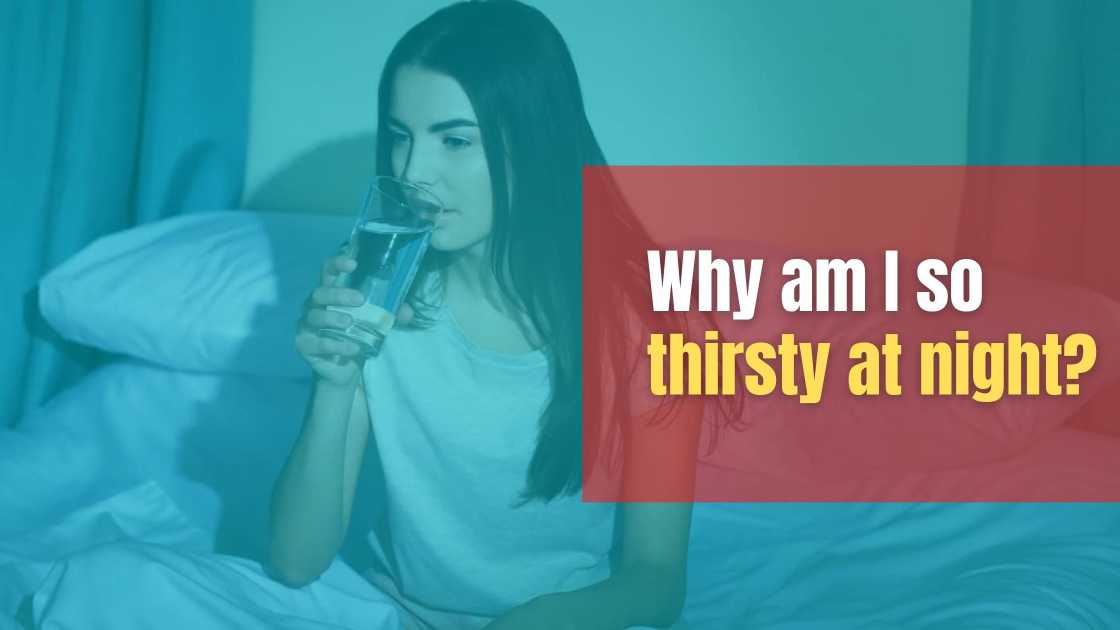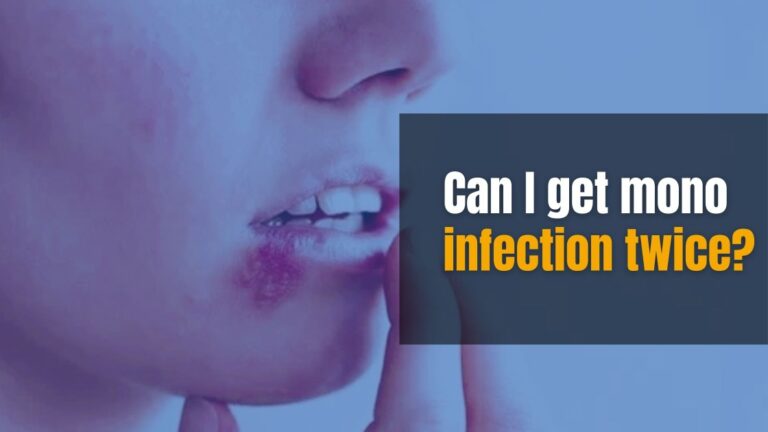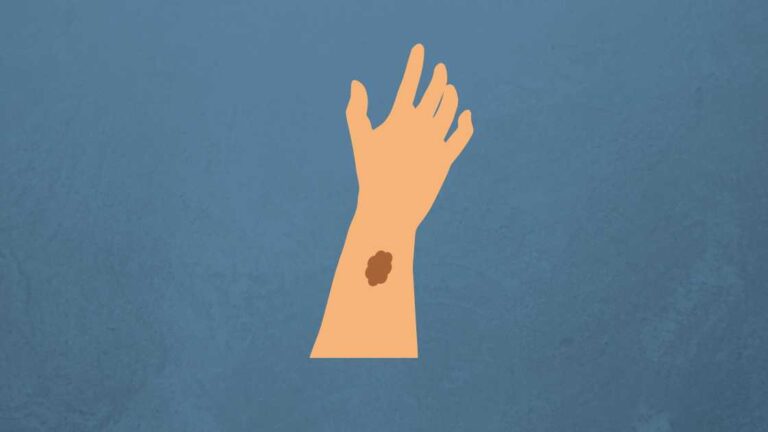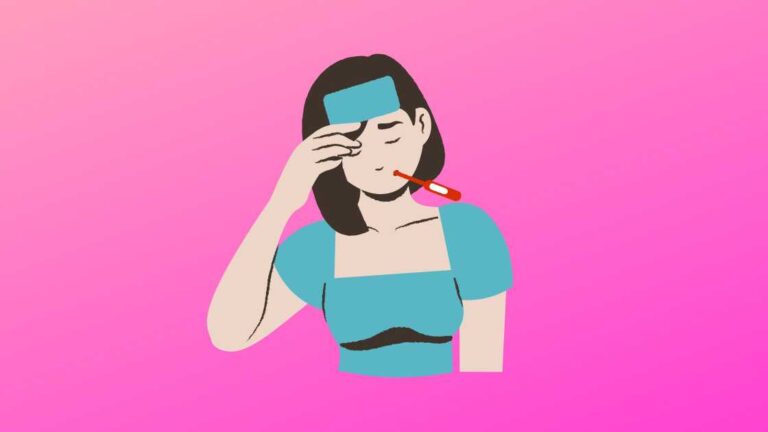If you find yourself feeling very thirsty at night and having to wake up multiple times just to drink water may be very frustrating. For your information, there are a couple of medical conditions that usually make people thirsty at night.
Waking up thirsty may be a small irritation, but if it occurs frequently, it may indicate a serious health problem that requires immediate care. Hence the answer to your question “why am I so thirsty at night” will be that maybe you have one of these conditions.
In this article, you will find out what is probably causing you to feel thirsty at night and what you can do about it.
Reasons why you might be so thirsty at night
As mentioned earlier, there are some conditions that may cause you to feel very thirsty at night, and below are a detailed explanation of some of these conditions. Go through them one by one and identify the possible cause of your condition.
Anemia
Anemia is a condition that affects the red blood cells in your body. Fatigue or tiredness is the most common symptom of anemia. Increased thirst, on the other hand, can be a sign. Dehydration can occur as a result of certain kinds of anemia.
Anemia is normally a minor ailment, but it can develop to more serious health problems if left untreated. If you suspect it’s related to what’s keeping you awake at night, go to your doctor.
Kidney, liver, or heart failure
You may feel extremely thirsty if you have severe heart, kidney, or liver failure, as your body attempts to balance its water and electrolyte levels.
According to multiple studies, around 70 percent of persons in intensive care units with these illnesses had moderate to severe thirst, especially at night.
Sjögren syndrome
Another reason why you are thirsty at night is Sjögren syndrome. This is an autoimmune disease in which the body attacks the glands that keep your eyes and lips moist.
Women are more affected than men. It can also result in dry vaginal skin, rashes, and joint discomfort are all symptoms of systemic inflammation.
Diabetes
Excessive thirst is a symptom of diabetes mellitus. When your body is unable to effectively metabolize sugar, your kidneys work hard to remove the excess sugar from your bloodstream.
Your kidneys create more urine, which causes you to feel thirsty and consume more water.
Other conditions that might produce severe thirst include:
- Diabetes insipidus in the central nervous system
- Diabetes insipidus nephrogenic
- Diabetes insipidus dipsogenic
Vasopressin synthesis and absorption can be affected by central and nephrogenic diabetes insipidus, respectively. Vasopressin, also known as the antidiuretic hormone, is a hormone that controls the body’s water balance.
Low synthesis results in your body excreting an excessive amount of urine, leaving you with an almost insatiable thirst.
Menopause
Menopause might be another reason why you find yourself being so thirsty at night. Estrogen and progesterone, two reproductive hormones, both play a function in fluid management and thirst in the body.
Hormonal changes during perimenopause and menopause can produce hot flashes, nocturnal sweats, and increased thirst.
Researchers examined sweating patterns in premenopausal, perimenopausal, and postmenopausal women as they exercised in a 2013 study.
Perimenopausal and postmenopausal participants reported themselves as thirstier before and after exercising than premenopausal women, according to the study. It is especially crucial to drink enough water if you’re going through menopause.
Sleep apnea
Sleep apnea is a sleeping disorder in which breathing repeatedly stops and starts. It is more common in men. Risk factors of sleep apnea include age and obesity. Symptoms include snoring loudly and feeling tired even after a full night’s sleep.
You may be breathing through your mouth at night if you have sleep apnea. You may be awakened by the discomfort of a dry mouth.
Dry mouth can also be exacerbated by using a continuous positive airway pressure (CPAP) device. If you use a CPAP machine, ask your doctor about a machine that is less prone to dry out your mouth as you sleep.
It’s also crucial to discuss dry mouth with your dentist. Tooth decay can be caused by a lack of saliva in the mouth.
Hangover
You can wake up thirsty if you drink a lot of alcoholic drinks in a short period of time. Diuresis, or the loss of fluids through urination, as well as other chemical pathways within the body, may be triggering your thirst response.
A molecule called acetaldehyde is created when your body breaks down alcohol. In addition to triggering other physiological effects, that chemical enhances the sensation of thirst.
Drinking water, herbal tea, sports drink, or broth can all help with your hangover.
Sleeping environment
Where you sleep can also be a factor as to why you might be thirsty at night. A colder room is preferable to a warmer one for sleeping well.
Experts recommend that you keep your bedroom between 60- and 70-degrees Fahrenheit (16 and 21 degrees Celsius). It’s also conceivable that the air in your home is too dry if you wake up thirsty.
Dehydration
Dehydration occurs when you lose more fluid than you consume. Common causes of dehydration include heat, insufficient fluid intake, excessive sweating, side effects of certain medication, excessive physical activities, etc.
Dehydration can cause you to feel thirsty at night. This is your body’s way of telling you to take in more water.
Medication
Certain medications like corticosteroids, SGLT2 inhibitors, antipsychotics, antidepressants, anticonvulsants, and anticholinergics can make you wake up at night feeling thirsty. This is a side effect of these medications.
Large and salty meals
More fluids are diverted to digestion when you eat a larger meal. This causes a decrease in blood volume and thirst.
Salty foods also make you thirsty because sodium is the main electrolyte that causes blood osmolality to rise. Sodium is the most critical electrolyte for controlling thirst.
The major solute in the extracellular fluid is sodium. Thirst increases as salt content rise.
What to do in the event of nighttime thirst
- Add salt to your water. Salt supports the production of Antidiuretic Hormone (ADH), also known as vasopressin (a small peptide hormone that regulates the body’s retention of water) so that you can sleep throughout the night.
- Drink enough water to keep yourself from being dehydrated.
- Respiratory water loss is reduced when you breathe via your nose. It also helps to keep your mouth moist during the night.
- Sweating will increase, thirst will increase, and sleep will be disrupted if your room is too warm. If your room is overly dry, it can cause you to lose more water through your breathing and dry out your mouth.
Both of these issues are easily resolved. Keep your room cool (most individuals prefer temperatures between 65 and 70 degrees). You can also use a humidifier
- Check to see if the medication you are on has side effects such as thirst. If you are not sure about that then talk to your pharmacist or consult your doctor to either make changes to the dosage or give you a different drug.
Summary
If you wake up thirsty in the middle of the night, it could be due to your sleeping environment, hydration habits, or a prescription you’re taking. A simple change in your routine could result in a restful night’s sleep.
However, if you wake up thirsty on a daily basis, an underlying health condition could be to blame.








Leave a Comment